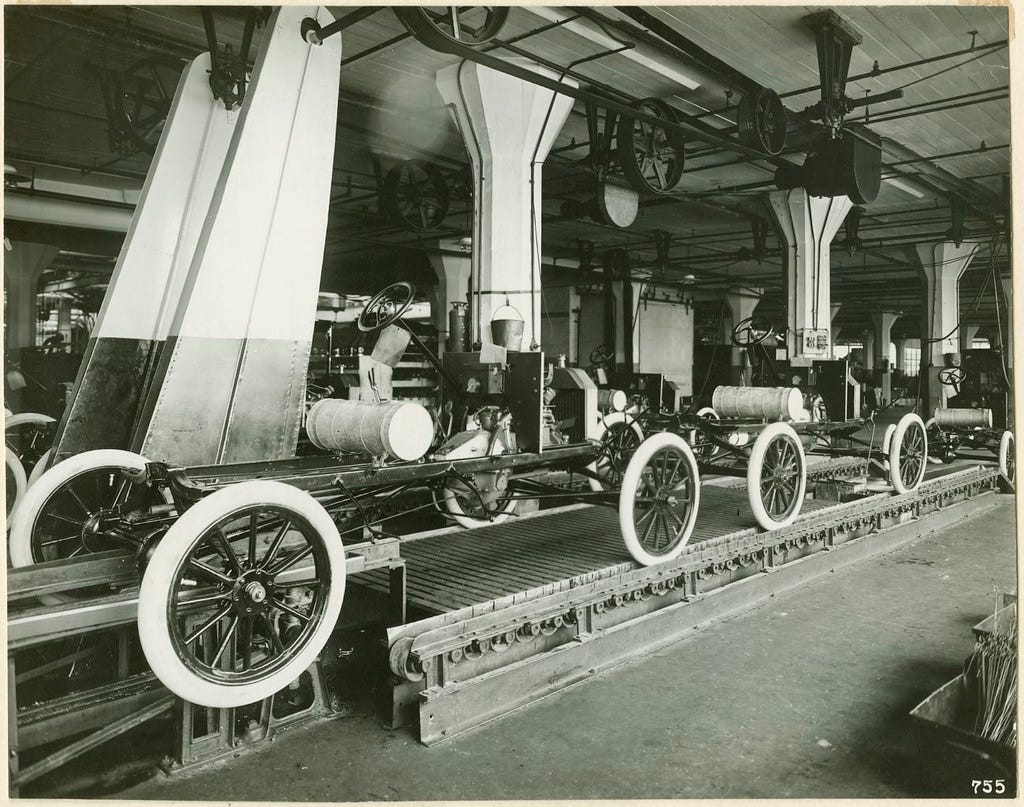The future is our choice
Unlike tech, society's future is not a foregone conclusion
In 1914, Henry Ford increased the wages for factory workers to $5/day, double the then-prevailing wage. Among other things, he believed that if he wanted to sell his cars, he also needed to help create the consumers. There was an outcry from fellow industrialists - accusing him of socialism and of upending the labour markets. Wall Street predicted disaster for Ford. But sales, and profits, kept rising. The rest is history.
With his bold decision, Ford helped create the modern middle class.
Even as technology evolves, the way society itself will evolve is very far from a foregone conclusion. Tesla launched a Tesla Diner, where food is served by Optimus robots. The larger aim, of course, is to turn them into factory workers.
As the US pursues re-shoring, in a bid to stay globally competitive, there will be a massive push towards automation. But what is to become of the workers? New forms of work will emerge, they say. We've seen this story before. Heck, I say so myself. But it is not as automatic as it feels.
With AI, gene-editing, quantum computing, space travel, we as a society will be faced with many dilemmas. Do we allow unrestrained embryonic editing? Who gets access to the earliest capacities unleashed by quantum computing? The answers to these questions lie outside the realm of technology itself, and in the realm of society and politics.
Where we end up in twenty, thirty, fifty years will depend on the choices we make. A techno-utopia is not the only possible outcome
.


